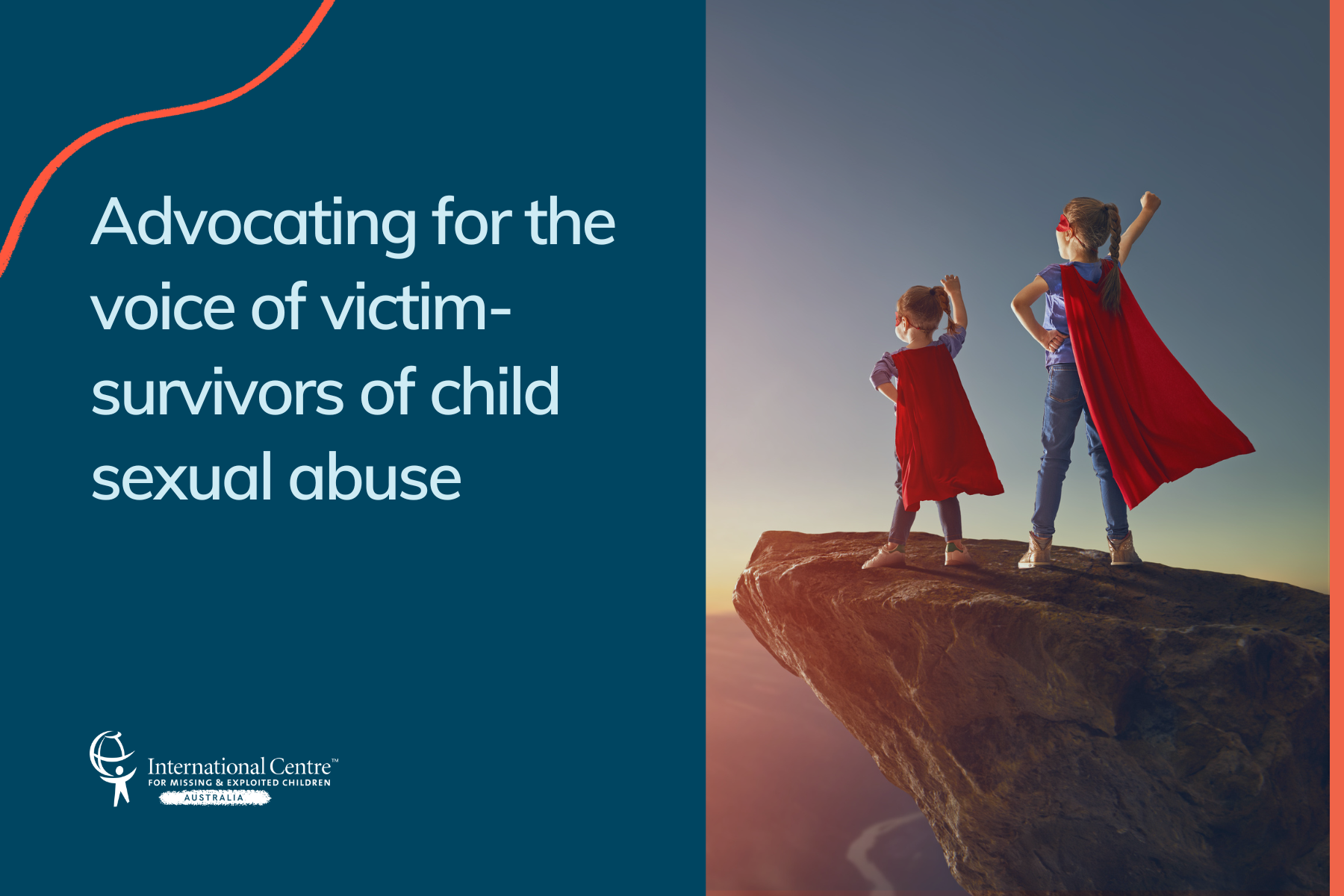


A child can never give consent. The sexual abuse of a child is just that – abuse. This abhorrent crime must be called what it is and we need to begin with the foundations, by ensuring that the correct terminology is entrenched in our legislation.
We may not realise it, but the words we use when we speak about child sexual abuse have immense power. They can change our perception as a society about this issue, and they can either shame or empower a victim-survivor of this crime.
Our general discomfort with the topic of child sexual abuse has historically led to the use of language which deprioritises the safety of children in Australia’s legislation. The State and Territory laws are inconsistent in their definitions, with many states having referred to the ‘persistent sexual abuse of a child’ as a ‘relationship’.
Recognising the harm and stigma that this causes victim-survivors, The Grace Tame Foundation launched their ‘Harmony Campaign’ in February 2022, which is aimed at making child sexual abuse laws consistent across all jurisdictions in Australia. The disparities around the age of consent, the definition of sexual intercourse, what consent is and grooming, as well as the language used to describe the crime, trivialise the experiences of victims and are often exploited by perpetrators.
The former Australian of the Year has been relentless in her pursuit of these changes, seeing success across the country in how State and Territory legislation refers to the crime. As at August 2023, the word ‘relationship’ has been removed nationwide from the heading of the criminal offence of the ‘persistent sexual abuse of a child’. This is a significant achievement, and the first step towards their aim of removing the word ‘relationship’ from all parts of the offence of child sexual abuse in every jurisdiction.
“Softened wording doesn’t reflect the gravity of the crime, it feeds into victim-blaming attitudes, eases the conscience of perpetrators and gives license to characterise abuse as romance.”
The Grace Tame Foundation, Harmony Campaign
Grace Tame has been a powerful advocate for the voice of victim-survivors of child sexual abuse, reminding us through her tireless work that children deserve our commitment to protecting them from harm. Despite how confronting this crime is, we need to engage in public conversations in a mindful and trauma-informed way to remove the stigma surrounding the issue. With the Australian Child Maltreatment Study revealing that 28.5% of Australians have experienced child sexual abuse, this epidemic is not something that we can ignore. It may be difficult to speak about, but children need us to lean into the discomfort to both acknowledge the pain and trauma of victim-survivors and prevent more children from being abused.
With recent high profile media cases shing a spotlight on the issue of child sexual abuse we are currently experiencing an increase in the public conversation surrounding the issue, particularly relating to changes we need to make to current systems in order to protect children from abuse and exploitation. An increase in discourse means an increase in the need for a better understanding of how we refer to this abuse, and how that discussion impacts victim-survivors. The new reporting guidelines for media reporting on child sexual abuse, developed for the National Office for Child Safety (NOCS) are designed to keep the victim-survivor voice at the centre of this topic.
The work of The Grace Tame Foundation affirms just how important, and guiding, the victim-survivor voice is in shaping both our response to and perception of child sexual abuse.
Whether you have an active role in child protection, you’re a parent, you work in the child care sector, or simply as a member of society, we can all play an active role in supporting victim-survivors. And the easiest to do this is by engaging in meaningful public discourse using the most appropriate language. In 2016 ‘The Terminology Guidelines for the Protection of Children from Sexual Exploitation and Sexual Abuse’ were adopted in Luxembourg, establishing a global standard for terminology in relation to child sexual abuse. This is a helpful and comprehensive guide used by many organisations involved in working against this crime. ICMEC Australia has created a simple summary of these global standards for those who would like to start the process of better understanding the correct terminology.
We are encouraged by the achievements of The Grace Tame Foundation in championing the rights of victim-survivors of child sexual abuse. Every milestone that is documented in the media creates more public awareness of this crime. But their Harmony Campaign is not finished. Laws in most states and territories across Australia (except Victoria and Western Australia) continue to use the term ‘relationship’ in other parts of the offence legislation. Using trauma-informed language is essential in helping children feel safe and supported enough to report abuse and to recognise harmful behaviour. It takes champions like Grace Tame to share the victim-survivor voice. Now let’s work together to help her and other advocates remove the stigma that has surrounded sexual abuse and exploitation for too long.
If you, or anyone you know, needs help, find support services available here.

ICMEC Australia acknowledges Traditional Owners throughout Australia and their continuing connection to lands, waters and communities. We pay our respects to Aboriginal and Torres Strait Islanders, and Elders past and present.